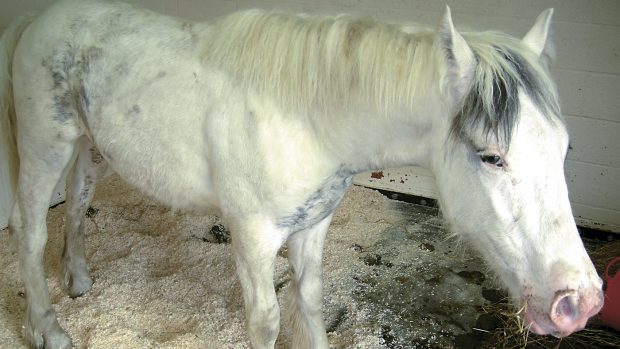Sometimes only a major disease outbreak is enough to remind owners how important it is to vaccinate horses, an expert has warned.
Dr Richard Newton, head of epidemiology and disease surveillance at the Animal Health Trust, asked “can we do things differently?” during a meeting on equine biosecurity at Defra headquarters on Wednesday (26 October).
Representatives of bodies from across the equine industry met to discuss disease control, and how it could be improved.
“We probably do need to do things differently,” Dr Newton said.
“It’s easy to say prevention’s better than cure, which is our premise. It’s a concept I assume is widely accepted. I try to promote vaccination, while quarantine should be used as a form of insurance by horse owners.
“But do owners put their money where their mouths are?”
Dr Newton used equine flu as an example because it has “the potential for large epidemics, but is within the power of horse-owners to do something about”.
He explained that the disease is highly contagious, has no latent or carrier state and relies on contact between horses, and that although it mainly occurs in non-vaccinated animals, it is possible for a vaccinated horse to develop it.
“But do we need to vaccinate all animals in a population to get herd immunity?” he asked.
“When a significantly large proportion of a population is vaccinated, it prevents transmission to the others.”
The “critical threshold” necessary for national herd immunity to equine flu in the UK is between 75 and 90% of the horse population.
“Overall, the coverage is much lower than needed – less than 40%, based on sales of vaccinations.” Dr Newton said. “It may even be less than 30%.
“Horse owners need to understand the importance of equine flu vaccination and herd immunity.”
Dr Newton said many more equestrian events, including those in the unaffiliated and non-competitive sectors, should require horses to be vaccinated, and that “vets need to step up their game”, adding: “Are they doing enough to sell the concept of equine preventative medicine to clients?”
Related articles:
- Vets warn a major flu outbreak could bring equine sport to a halt
- Equine flu: what you need to know
- Equine flu: why you need to be vigilant *H&H VIP*
He added: “One of our biggest problems is that to some extent, we’re victims of the success of vaccination.
“The vaccination paradox: when a disease is there and causing problems, we call for a vaccination but if it comes and is effective, vets and owners lose sight of the condition and worry more about possible side-effects of the jab.
“Despite our best efforts, sometimes only an outbreak of disease will remind us why we were vaccinating in the first place.
“I’d like to think we can avoid that, but it might be the only way to re-focus.”
Liphook Equine vet Andy Durham has previously told H&H that “multiple small outbreaks occur every year in the UK, and major outbreaks have occurred before and may well occur again”.
“Should it happen, equine sport will grind to a halt and the economic consequences will be potentially huge,” he added.





